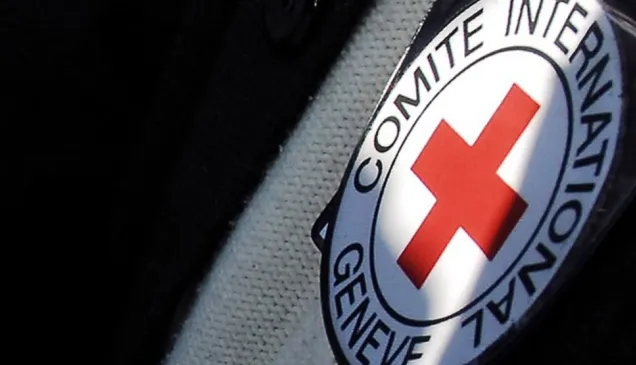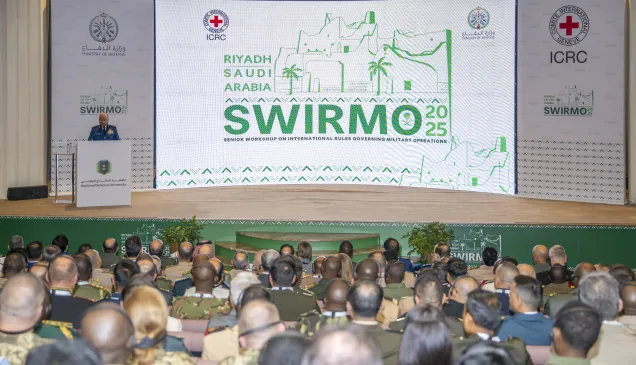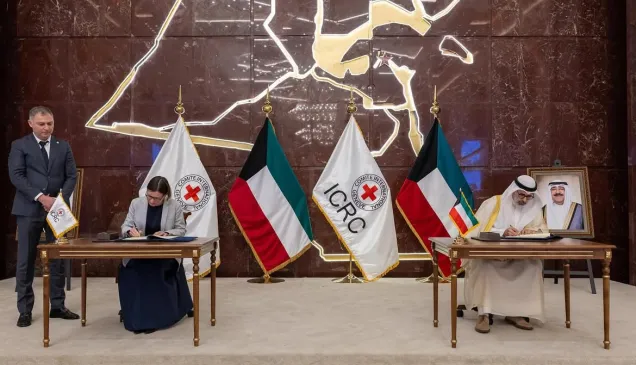ICRC at GCF 2025: Putting the Humanitarian Voice at the Heart of Cybersecurity
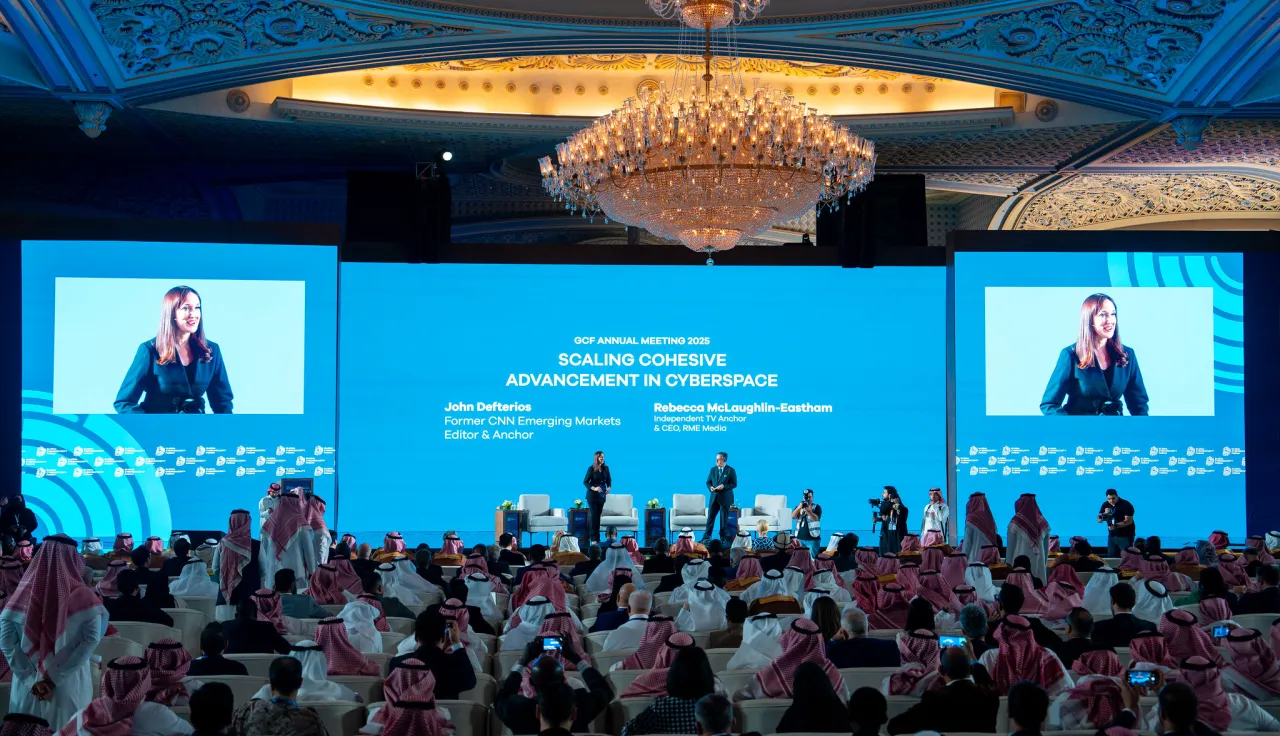
Riyadh, Saudi Arabia — As cyber threats increasingly endanger civilian lives, the International Committee of the Red Cross (ICRC) joined leaders, policymakers, and innovators at the Global Cybersecurity Forum (GCF) to push a single priority: keeping people and essential infrastructures protected and safe when technology is weaponized.
From protecting hospitals from ransomware and other forms of tech- cyber-attacks to safeguarding humanitarian lifelines like water and electricity power, the ICRC is working to ensure international humanitarian law (IHL) applies when wars go digital.
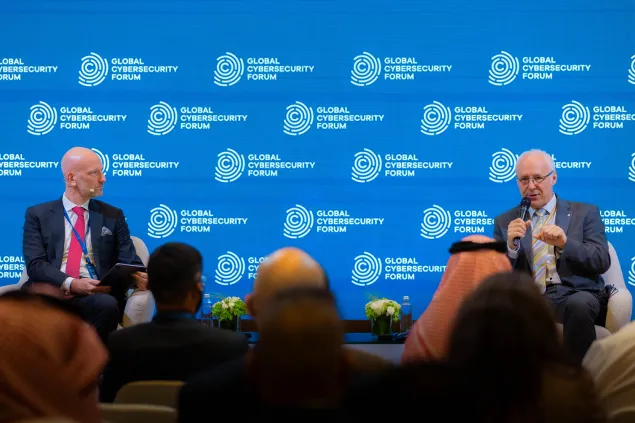
Shaping the Conversation at GCF 2025
At the opening of the Global Cybersecurity Forum, the ICRC joined global leaders and cybersecurity experts to reinforce a shared goal — building trust and resilience in the digital space.
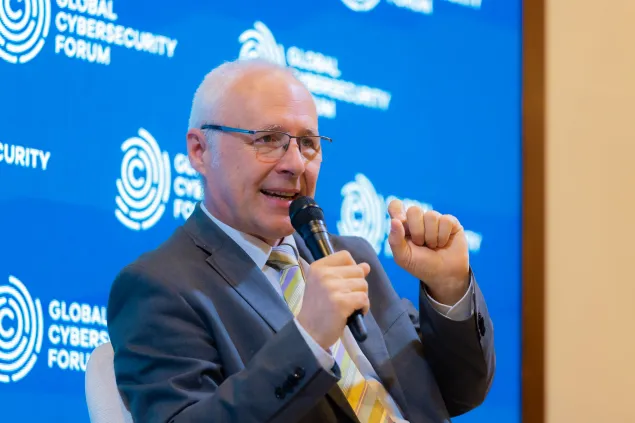
During the session on protecting critical infrastructure, Laurent Gisel, Head of the ICRC’s Arms & Conduct of Hostilities Unit, introduced the organization’s pioneering digital emblem — a modern extension of the iconic red cross and red crescent adapted for cyberspace. Just as the emblem protects medical facilities and humanitarian workers in the physical world, its digital counterpart is designed to signal and shield the networks and systems used by humanitarian organizations from cyber operations. The project is part of the ICRC’s broader work to ensure that new technologies are governed by the same principles of protection that apply in armed conflict.
Read more about the digital emblem here.
ICRC specialists also contributed to forward-looking discussions on the future of cyber diplomacy, exploring how international law and diplomacy can keep pace with fast-changing digital threats and protect civilians from harm. The discussion highlighted the growing role of the private tech sector, the impact of harmful information, and the importance of strengthening dialogue between States and technology companies to navigate today’s complex information-cyber-social environment.
In the Impact Network sessions, the ICRC engaged with governments, technology companies and policy leaders to identify practical solutions for safeguarding critical services — from hospitals to water and energy networks — that communities depend on during conflict.

Why It Matters
Conflicts today can unfold at the speed of a keystroke. An attack that shuts down a hospital or blocks humanitarian aid is no less devastating than one on a physical battlefield. The ICRC’s presence at GCF reinforced that humanitarian protections must extend into the digital domain.
Partnering With the Gulf’s Cyber Leaders
The Gulf Cooperation Council is rapidly emerging as a key player in global cyber diplomacy and resilience. During the Global Cybersecurity Forum in Riyadh, the ICRC reinforced its collaboration with regional authorities and innovators to advance solutions that uphold international humanitarian law while strengthening global cyber resilience. This included a bilateral meeting with Saudi Arabia’s National Cybersecurity Authority to explore avenues for future cooperation and knowledge exchange.

